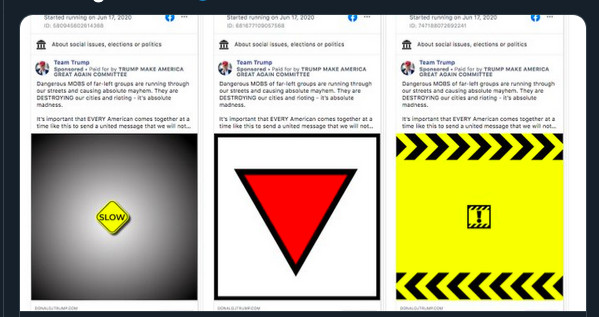Questioning accountability of social media
Even if platforms have filters that detect words, symbols or pictures that indicate unwanted content, it can easily be circumvented by malicious perpetrators.
Change Size

W
e recently witnessed dozens of big brands pulling out from advertising on Facebook as a form of pressure to demand that Facebook take stronger action against racist and hateful content broadcast on its platform.
The question is whether such a boycott is enough for Facebook to react? Could Facebook actually filter racist and hateful content from showing up on its platform? And last, would there be any way at all to ensure social media is free from racism, hatred (and their cousins, hoax and misinformation) once and for all?
Though Facebook (and other social media) rely on advertising revenue, the boycott of major brands would only set it back 10 percent (or less). The majority of advertisers on social media are small ones taking advantage of the cheaper rate card, as well as effective audience reach; thus unless all (or most) of them join the boycott this act would not affect Facebook financially.
This stance, however, is effective in addressing the issue and is a public relations nightmare for Facebook. Though Facebook is aware of this situation and stated it would do its best to remove hateful misinformed content, the second question still lurks as whether it would be possible for any social media platform to do so.
Technically, even if platforms have filters that detect words, symbols or pictures that indicate unwanted content, it can easily be circumvented by malicious perpetrators. Change “sex” to “53x”, a Nazi swastika to a hooked cross and instead of a menacing firearm use a colorful photo of a water pistol. Not to mention, how do you differentiate between the hateful Nazi symbol from the (original) religious Hindu swastika or how do you distinguish between real weapons and toys; even with the best filtering programs it is still far from perfect.
Then there is the meaning behind the use of these semiotics; a noose on its own may be related to types of knots but it can also mean something entirely different and offensive.
Government regulations controlling social media content may not necessarily solve the problem either; other than blatant hate speech punishable by law, there is a wide gray area between freedom of speech and despotic governments using social media data to identify and punish dissent.
There is yet another problem, which is the identification of the unwanted content; even if platforms can filter advertising content, users’ offensive posts would only be identified once they are broadcast and even if they are taken down, the damage has already been done.
And even this can only be done when such a post is identified and/or reported, but algorithms created by digital platforms are becoming so sophisticated that many if not most content would be exposed only to those who shared similar views depicted by that very content. This means even if content is offensive to one community they may never see it, yet the content continues to be present to those who endorse it.
Unlike mainstream media and publishers that are responsible for their content – as they have the right and duty to edit and ensure their content complies with regulations and ethics – social media administrators are detached from their subscribers’ content. They may have a say and filter the types of advertising it is to carry but are in a difficult position to regulate what their members talk about.
So, can we hold these platforms responsible for the content their members upload? This question is like asking whether we can hold gun manufacturers responsible for the deaths and crimes perpetrated using firearms. Of course we can, as with all manufacturers and brands worthy of their name, they hold themselves responsible by doing everything in their power and control to ensure safety, distribution, sales and use of its products to minimize any negative impact on consumers and their surroundings.
They are let off the hook when we see that they have done everything they can to prevent any mishap. However difficult it is to reduce risks to zero and even if a brand had nothing to do with an incident, respectable companies do not shy away from responsibility and in these challenging and sensitive times many consumer goods are leading the way by changing their brands’ depiction of what is now considered racially imbued content.
To this, Facebook and any other platform should show responsibility by proving that they are genuinely and seriously doing everything in their power to prevent unwanted content. Only by providing this they may regain the trust of their consumers.
We now come to the final question of whether we can rid social or any media of hateful or misleading content. I believe it is as difficult as eradicating crime altogether but I do believe we can significantly reduce it, its spread and effects.
Digital social media with all its benefits in connecting people all around the world is the same platform that divides them. The boycott of Facebook by large corporations is promising as a movement to unite the world against hate as the brands not only represent the corporations but more importantly their global consumers.
We might not rid hateful content completely but we could severely limit it by demanding platforms be held accountable and ensure that the public receives responsible content. Note that news of the boycott was broadcast through mainstream media. Hence we wait for what social media as a platform can really contribute to society.
With all its financial and advanced programming capabilities, surely social media can define its role more than merely enabling unabridged conversations.
***
The writer works for Roy Morgan and teaches advertising and marketing at the University of Indonesia.









